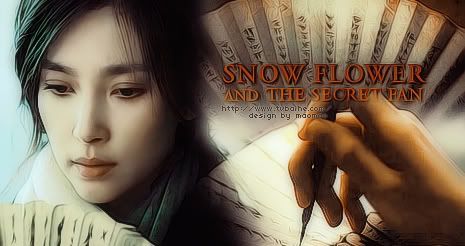|
|
这是韩国影评人金奎铉为Darcy的网站写的影评,这是那个网站上有史以来最长的一篇文章 。注意看看正文上方的引子,蛮搞笑的,好象是Darcy写的。他说金奎铉是这个世界上最忠实的朴赞郁迷! 。注意看看正文上方的引子,蛮搞笑的,好象是Darcy写的。他说金奎铉是这个世界上最忠实的朴赞郁迷!
ps.《亲切的锦子 》才上映没几天就捷报频传,受到观众和影评人的追捧,真是振奋人心丫!偶已经等不及啦 这里有看过的人了吧,期待分享观后感! 这里有看过的人了吧,期待分享观后感!
=======================
Sympathy for Lady Vengeance
[Dear reader: Please excuse Professor Kim, who ranks as perhaps the world's most devoted Park Chan-wook fan, for the considerable length of the following review. He has promised to keep subsequent reviews to a more moderate size, at least until Park releases his next film. --Ed.]
Sympathy for Lady Vengeance is ostensibly the final film in director Park Chan-wook's "Revenge" trilogy that had begun with Sympathy for Mr. Vengeance (2002) and continued on to Old Boy (2003), three movies with strikingly different plotlines and characters. They are, however, united in their overarching themes: suffering, revenge and, most importantly, salvation, or its impossibility. Much has happened since the November 2003 release of Old Boy. It has since gone on to win the Grand Prix at the 2004 Cannes Film Festival. In a complete turnabout from the situation only two years ago, non-Korean cinephiles now have access to DVD and art house theater representations of Park's earlier works, as surely will they have of Lady Vengeance.
At first glance, Park Chan-wook seems poised on the verge of international fame and joining the ranks of Hong Sang-soo and Kim Ki-duk as frontrunners of Korean cinema. However, as sharply divergent critical opinions on Old Boy in Korea, North America and elsewhere attest to, Park is more problematic as an auteur to be celebrated. His films retain their power to shock and disturb (without relying on standard devices of exploitation) even the most seasoned critics, but not always in the ways they expect. They cannot be reduced to allegories about Korean society or history: neither do their languages follow the established grammar of "art" films. They are often accused of harboring vulgar and perverse qualities unbecoming their formal resplendence and aesthetic sophistication. Conversely, they are dismissed or vilified for being nothing more than a Faberge egg for a famished man, emptily beautiful and cleverly constructed, with little emotional or moral content. (More than once, Park Chan-wook has been given an epithet "the director who makes movies only with his brains, not his heart" by Korean journalists and critics. Jeez, I do wish someday to see a film genuinely made "with only brains, not heart" by a Korean director)
Sympathy for Lady Vengeance, if anything, will add more dry wood to the fierce bonfire of controversy surrounding Park's status as an artist as well as the real worth of his undeniably spellbinding films. Lady Vengeance unfolds in three sections. First, we see Geum-ja (Lee Young-ae, reuniting with Park after JSA [2000]) being released from prison after a 13-year sentence for the heinous crime of kidnapping and murdering a preschooler. From a series of flashbacks, we learn that she was revered as a saintly figure during her tenure in the female prison (hence the Korean title, "Kindly Miss Geum-ja"). Gradually, however, it is revealed that she is planning an elaborate revenge against Mr. Baek (Choi Min-sik, star of Old Boy), the orchestrator of the kidnap scheme for which she was arrested and convicted. She half-threatens, half-cajoles her former fellow inmates to help her carry out the revenge. The second section deals with Geum-ja's implementation of the plan, the scope of which expands to include the retired detective once assigned to her case (veteran actor Nam Il-woo), Jenny, her estranged daughter adopted by an Australian couple, and a host of other characters. The final section focuses again on Geum-ja and what I would have to call the spiritual aftermath of her revenge against Mr. Baek.
Lady Vengeance is clearly a work of a major artist, evolving before our eyes and improving his finesse. When Park is on top of his myriad tools of cinematic expression, the results have always been breathtaking and it is no exception here. The detective's reunion with Geum-ja is depicted with progressively rapid cross-cutting, a virtuoso manipulation of images. Her face in one scene occupies a small patch in the right-side frame: I have never seen such an extreme angle shot since Sidney J. Furie's take of Michael Caine in Ipcress File (1965). One of the back-street passages in Seoul, shouldered by slanting stone walls, a ridiculously mundane landscape for Seoulites, is transformed into an almost Biblically sinister Valley of Death, pregnant with hellish gloom. Those, too, concerned with missing the deliriously whacked-out imagery and wild stylistic flourishes of Park's earlier two films need not worry. Even though Lady Vengeance is more leisurely paced and "gentler," still only in a Park Chan-wook film do we get not only a dog with a human face (a la the Phil Kaufman Invasion of the Body Snatchers [1978]), but also a bullet entering the dog's brow and exiting through his, ah, terminal organ.
The technical team Park has assembled is, as usual, top-notch. Cinematographer Jeong Jeong-hoon (Antarctic Diary) and lighting director Pak Hyun-won (Windstruck, Mr. Vengeance), reunited from Old Boy, had an even tougher job in Lady Vengeance, as it includes more shifts in color and tone, beginning with the slightly garish and jaundicedly "warm" chromatic scheme for earlier sequences. Also returning from Old Boy are composers Jo Young-wook and Choe Seung-hyun, who provide a delicate, deceptively "proper" score, based largely on strings (Vivaldi is heard again, but used much more subtly than in Old Boy). Production design recreates the unmistakable universe of Park Chan-wook, based on the recognizable clutter of everyday life, but ever so slightly alien, hypnotically unnerving, including Geum-ja's scarlet den complete with an altar flanked by crimson candles.
Ironically, one of the reasons for me not finding Lady Vengeance as stunningly original as Mr. Vengeance or Old Boy may well be the very factor that might grant it a wider acceptance in North America and Europe. In the second section, Geum-ja makes a choice that pushes the film into territory that I feel has been mined well by the likes of Andre Cayatte and Claude Chabrol, a development that nonetheless will be easier to access emotionally for Euro-American viewers: this type of issue is codified as "serious" in their minds (Do I sound cynical?). Moreover, performances of the (theatrically trained) actors here are truly excellent. They are so strong (especially the dignified grandmother played by Won Mo-won) that they overshadow Lee Young-ae.
This brings me to Lee's star turn as Geum-ja. I have once in another review compared her to Hara Setsuko, wondering if there might be a Korean director who could bring out hitherto unexplored qualities in her, the way Ozu Yasujiro did with Hara. Director Park has accomplished this. Lee, who appears in practically every frame of the movie, presents a character radically removed from her CF or TV drama personality: psychologically damaged, mired in guilt, and yet cold-heartedly manipulating others to accomplish her objectives. As guided by Park, Lee's portrayal of Geum-ja swerves between Isabelle Huppert in a Chabrol film and Catherine Deneuve under the direction of Luis Bunuel. As such, I found her femme fatale characterizations more satisfying than her performances in the "dramatic" sections, not that she is bad in the latter. When Lee, filmed from a low angle in front of a vanity mirror, throws her head back and laughs, or when she, after a night in bed with her boy-assistant (adorably fresh-faced Kim Shi-hoo), nonchalantly asks him, "It was okay for me. How about you?" she exudes fatalistic glamour all her own: alluring, cool and somehow sorrowful. In these and other scenes, her devastating beauty made me feel like a cockroach crawling on a linoleum floor, looking up at her. I wish Lee Young-ae was allowed to be more Deneuve than Huppert, but her fans (who may well be the film's biggest constituency, globally speaking) will not be disappointed.
As for Lady Vengeance's depiction of violence, I cannot help but feel that film critics worldwide sometimes seem to employ a double standard: when European filmmakers show taboo materials, it's Art: when Asian filmmakers do it, it's Extreme Cinema. There are indeed supremely horrific images in Lady Vengeance, but none as graphic as children being raped in full view as in Catherine Breillat's Fat Girl/A ma soeur (2001) or in Agnieszka Holland's Olivier, Olivier (1992).
Lady Vengeance might feel rather subdued, even lackadaisical, for some viewers with a built-in expectation bred by Park's previous works. Its narrative might strike other viewers as meandering and unfocused. Yet others might take issue with the subplot involving Geum-ja's daughter. Geum-ja's English communication with the realistically pouty teen is handled reasonably well (certainly an improvement over Lee's awkward accent in JSA), although whether Baek's English translation of her dialogue in a key sequence will impress non-Korean viewers as funny (as it does Koreans) is open to question. Despite these potential flaws, however, in Lady Vengeance we are again presented with a unique vision of hybrid cinema, the kind of which we are not likely to see anywhere in the world, not to mention Korea. Morally complex, aesthetically accomplished, superbly acted, Lady Vengeance allows Park Chan-wook to bring the trilogy to a close on his own terms, by implicating us viewers directly in Geum-ja's act of vengeance and challenging us to see ourselves in her predicament.
In the third and final section, photographed in near-monochromatic colors (some prints will be reportedly shown with digital effects that gradually turn the film into black and white), Park lays out a deeply moving yet perplexing (especially so for non-Catholics, I suspect) vista of Geum-ja, perhaps standing in for all the main characters in the entire Revenge trilogy, reaching out for salvation, weighed down by her guilt.
I confess the film overwhelmed my defenses completely by this point: I was muttering to Miss Geum-ja onscreen, "Receive the Host. Save yourself. Save your soul." But how can she? And how can we?
In ignoscendo ignoscimur. In forgiving, we are forgiven. Those who commit the sin of revenge have condemned their souls. And are we not they, as well? (Kyu Hyun Kim)
koreanfilm.org |
|














